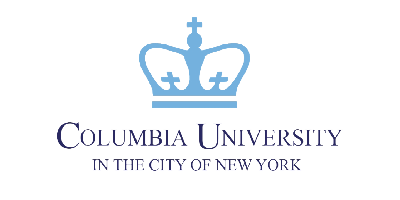Job posting has expired
Research Assistant
 Columbia University Columbia University | |
 United States, New York, New York | |
 Dec 12, 2024 Dec 12, 2024 | |
The salary of the finalist selected for this role will be set based on a variety of factors, including but not limited to departmental budgets, qualifications, experience, education, licenses, specialty, and training. The above hiring range represents the University's good faith and reasonable estimate of the range of possible compensation at the time of posting. Position Summary At the Stavros Niarchos Foundation (SNF) Center for Precision Psychiatry & Mental Health, we envision a near future when mental illness is treated in novel, targeted, and tailored ways, based on a new understanding of how mental illness develops and persists, unique to each individual. Our mission is to apply advances in neuroscience, technology and precision medicine to psychiatry; to create breakthroughs that further our understanding of the biological causes and underpinnings of mental illness; and to discover treatments that alleviate suffering from conditions previously considered untreatable. By addressing biological causes, and identifying genetic and other biological markers, the SNF Center will eliminate the stigma of mental illnesses and address societal disparities by ensuring equitable access to breakthrough Precision Psychiatry treatments. The Research Assistant will play a key role in investigating functional connectivity in two transgenic mouse models of schizophrenia and their control groups. This position requires advanced analysis of neural data, contextualizing connectivity analyses with behavioral measurements, and developing innovative methods to improve data compatibility and reveal biologically relevant patterns. The candidate will work on integrating multiple measures of connectivity, including phase locking value, wavelet transforms, and Granger causality, focusing on frequency bands and regions of interest related to sensory-evoked activity and resting-state functional connectivity. Additionally, the candidate will develop an epoch-free pipeline that leverages dimensionality reduction and hidden semi-Markov models with behavior-dependent priors, aiming to uncover dynamic brain state transitions linked to behavior. Located in the heart of Manhattan in New York City, the Zuckerman Institute houses over 50 laboratories employing a broad range of interdisciplinary and diverse approaches to transform our understanding of the mind and brain. In this highly collaborative and inclusive environment, experimental, computational, and theoretical labs work together to gain critical insights into how the brain develops, performs, endures and recovers. Responsibilities Duties involve the following tasks:
Minimum Qualifications
Preferred Qualifications Familiarity with image processing data analysis is preferable. This is a short-term appointment hire for no more than 1 year. Equal Opportunity Employer / Disability / Veteran Columbia University is committed to the hiring of qualified local residents. | |


